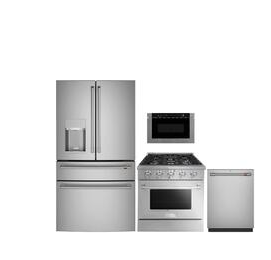Why doesn't the fridge get cold?

You've come to the correct spot if you've recently wondered why your refrigerator isn't getting cold enough. We discuss the potential reasons for this prevalent issue.
One of the most important items in every contemporary house is a refrigerator. Without it, preserving a portion of our daily food supply would not be feasible.
Almost any kind of food may be kept and stored within a refrigerator, including a large range of fresh fruits, vegetables, and products, as well as recently opened milk cartons. Not to add the fantastic kitchen Tupperware, ones filled with granny and mom's recipes, which have saved our lives many times. Or the frozen ones, which are just another of the fantastic culinary discoveries that may save families.
Although a refrigerator's functional life is typically 12 years, it is in our hands to be able to utilise this wonderful equipment for a very long time without experiencing any breakdowns or past accidents. Experts advise doing a few simple activities to maintain the fridge on a regular basis to ensure that this doesn't happen and to prevent unwarranted worries.
We are conscious of the fact that we often overlook these little upkeep tasks. We don't put our hands to our heads until one lovely day when we notice that the refrigerator does not chill as well as it used to.
Possible causes for the refrigerator not cooling

Contrary to what you may be thinking right now, there are a number of reasons why your refrigerator could not be keeping food cold enough or functioning as it did weeks ago.
The following are the most frequent causes of failure in various home appliances:
#1 Poor thermostat regulation

It happens rather often in households for the thermostat of the refrigerator to be set incorrectly. You'll notice that the refrigerator cools considerably more quickly after adjusting the temperature. However, you'll also notice that your energy expenditure is being consumed more and more. When faced with this dilemma, many families elect to boost the refrigerator's suggested temperature by a few degrees, creating cooling issues and degrading the food's quality.
#2 Opening the fridge doors too often

We are certain that you have remarked this on several occasions "How peculiar! The freezer cools when the refrigerator does not ". Can you now estimate how often you open and shut the refrigerator door each day?
If you have a habit of doing this, you are most likely the one harming your refrigerator. The inside of this appliance tends to heat up during the hotter months, which slows down the procedure of chilling things as it should.
#3 Little ventilation space

Overloading the refrigerator is a typical error made in houses. To the point where there isn't enough room for adequate ventilation, and it can't evacuate hot air to maximise cooling power.
You may prevent clogging the air vents by using the available space and storing just the absolutely essential foods.
#4 Climate class

The phrase "climatic class" specifies the ambient temperature required for your refrigerator to operate without any issues in your kitchen. Typically, a temperature range of 16 °C to 32 °C is advised. Even though each manufacturer often specifies the optimal class.
You can have difficulty chilling food if your kitchen does not reach these temperatures.
#5 Technical issues

A gas leak, frozen joints, a dirty condenser, or even a blocked fan. The technical staff must examine the refrigerator as a result of these technical issues.










